9 Former Celebrity Cult Members
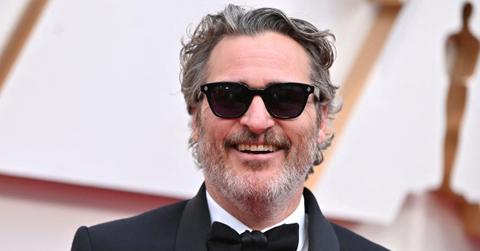
March 16 2020, Updated 3:18 p.m. ET
Thousands of organizations around the world can be classified as cults. It might be tempting to assume that people who join a cult are not ‘normal,’ but in reality, anyone can join a cult — even famous people.
MORE: Keith Raniere & Clare Bronfman Sentencing Dates Set In NXIVM Sex Cult Case
The word “cult” gets thrown around to describe all manner of organizations. But according to Harvard psychiatrist Robert Jay Lifton, a group needs to meet three specific criteria in order to be classified as a true cult:
MORE: Threesomes, Whips & Cold Showers: Lauren Salzman's NXIVM Sex Cult Testimony Exposed
- A charismatic leader who is worshipped by their followers. This leader is usually living, wields absolute power and authority over their followers and is not held accountable for any wrongdoing.
- A “process of indoctrination,” a.k.a. brainwashing, in which followers’ thoughts and beliefs are reshaped to fit the organization’s mindset. This will often result in followers doing things for the benefit of the group and the leader, which are against their own best interests.
- Economic, sexual and other exploitation by the group’s leader and/or senior members of the group.
Several celebrities grew up in places just like these. Others might not have been raised in a literal cult but still experienced severe abuse and indoctrination that affected them for years. Others grew up in circumstances that people labeled “cults” but were really just unconventional lifestyles.
Here are 9 celebrities who were members of cults at one point in their lives.
Allison Mack
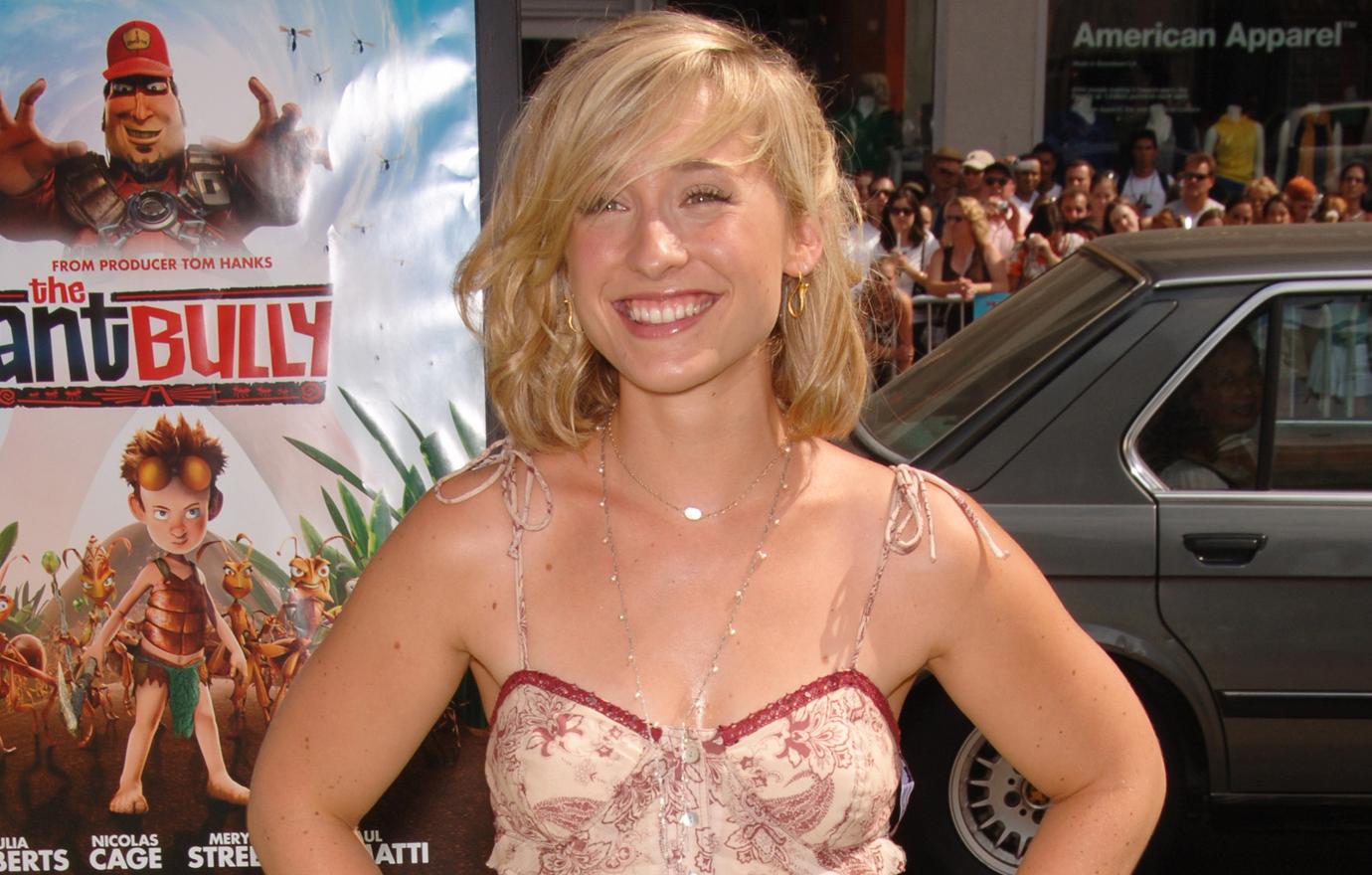
Allison Mack first gained fame in 2001 for starring as Clark Kent’s love interest, Chloe Sullivan, on the WB/CW series Smallville. But in late 2017, fans around the world were shocked to learn that Mack was also a key member of NXIVM, (pronounced “Nexium”), an abusive sex cult masquerading as a self-help group.
NXIVM was founded in 1998 by Keith Raniere along with Nancy Salzman. With a philosophy cobbled together from various other self-help programs, religious beliefs and hypnosis techniques, NXIVM claimed to “Empower people and answer important questions about what it means to be human." Recruits would pay more than $7,500 to attend NXIVM’s 12-hour “Executive Success Program” seminars. Investigators have described NXIVM’s business operations as essentially a pyramid scheme.
But NXIVM also included a small and shadowy sub-group called “DOS” or Dominus Obsequious Sororium, which means “Master Over Slave Women.” Raniere and other NXIVM members, including Mack, used DOS to recruit women to be Raniere’s personal sex slaves. Raniere would first acquire compromising information about his potential targets, which he used to blackmail them into joining DOS. Members of DOS were forbidden from having sex with anyone other than Raniere or from discussing their relationship with Raniere with anyone else. They were required to keep low-calorie diets because Raniere preferred thin women, and Raniere even conducted ceremonies in which a doctor would brand DOS members with his own initials.
Mack was arrested in 2018 for her role in NXIVM. According to prosecutors, Mack recruited women for DOS membership and introduced corporal punishment as a means of control. She pleaded guilty to charges of conspiracy to commit racketeering and racketeering in 2019.
Joaquin Phoenix

Years before winning an Oscar for his portrayal of a fanatical and murderous clown in the 2019 film Joker, Joaquin Phoenix spent the early years of his life in a religious cult. His parents, John Lee Bottom and Arlyn Dunetz, married in 1969 and shortly after joined the controversial Children of God cult. Along with his siblings, Summer, Liberty, Rain and the late River, Joaquin and his family spent much of the 1970’s traveling through South America with Children of God.
Founded in 1968 by renegade evangelical preacher David Berg, Children of God combines 1960’s-era “free love” ideals with proselytizing the message of Jesus Christ. Members lived on mostly isolated communes and survived on money and food they earned from begging. At one point, membership reached 15,000 people.
The New York attorney general’s office first labeled Children of God a cult in a 1974 report, which also outlined the church’s sexually abusive practices. To drive enrollment, Berg developed a tactic he called “flirty fishing” where he encouraged female followers to recruit new male members through sex. One of Berg’s daughters later described flirty fishing as “religious prostitution.” Berg also permitted and even encouraged his members to have sex with children. Berg was accused of abusing young girls, including his daughters and granddaughters.
The Phoenix family remained in the cult until 1977, when they became disillusioned and fled. Joaquin was just three. He later explained that he believes his parents weren’t initially aware of Children of God’s dark elements. "I think my parents thought they'd found a community that shared their ideals," he told Entertainment Tonight. "Cults rarely advertise themselves as such. It's usually someone saying, 'We're like-minded people. This is a community,' but I think the moment my parents realized there was something more to it, they got out."
Michelle Pfeiffer

Moving to Hollywood to pursue a career in the entertainment industry is daunting, especially if you don’t have money or a network of professional contacts. Many actors and actresses just starting out find themselves in a vulnerable position and organizations or individuals can take advantage of their innocence. This is what happened to Michelle Pfeiffer. Before she was famous, she got wrapped up in a movement called “Breatharianism.”
“Breatharians” believe that a person can survive without any food or water and just live off of fresh air and sunshine. The American version of the movement was founded in the early 1980s by a former Led Zeppelin and Jimi Hendrix sound engineer named Wiley Brooks. At least four breatharianism practitioners have died. from these practices.
After moving to Los Angeles to pursue acting, Michelle Pfeiffer met a couple who practiced breatharianism. They offered to take her in and put her on an extremely strict diet. Thinking the diet would help her acting career, Pfeiffer agreed. "They were very controlling,” Pfeiffer said. “I wasn't living with them, but I was there a lot and they were always telling me I needed to come more. I had to pay for all the time I was there, so it was financially very draining.” The couple also told Pfeiffer she wouldn’t survive on her own without their guidance.
It wasn’t until Pfeiffer met her future husband, actor Peter Horton, that she was finally able to escape. Horton was researching for a role in a film about Korean cult leader Sun Myung Moon. While helping Horton with his research, Pfeiffer finally realized that she was in a cult herself.
Glenn Close
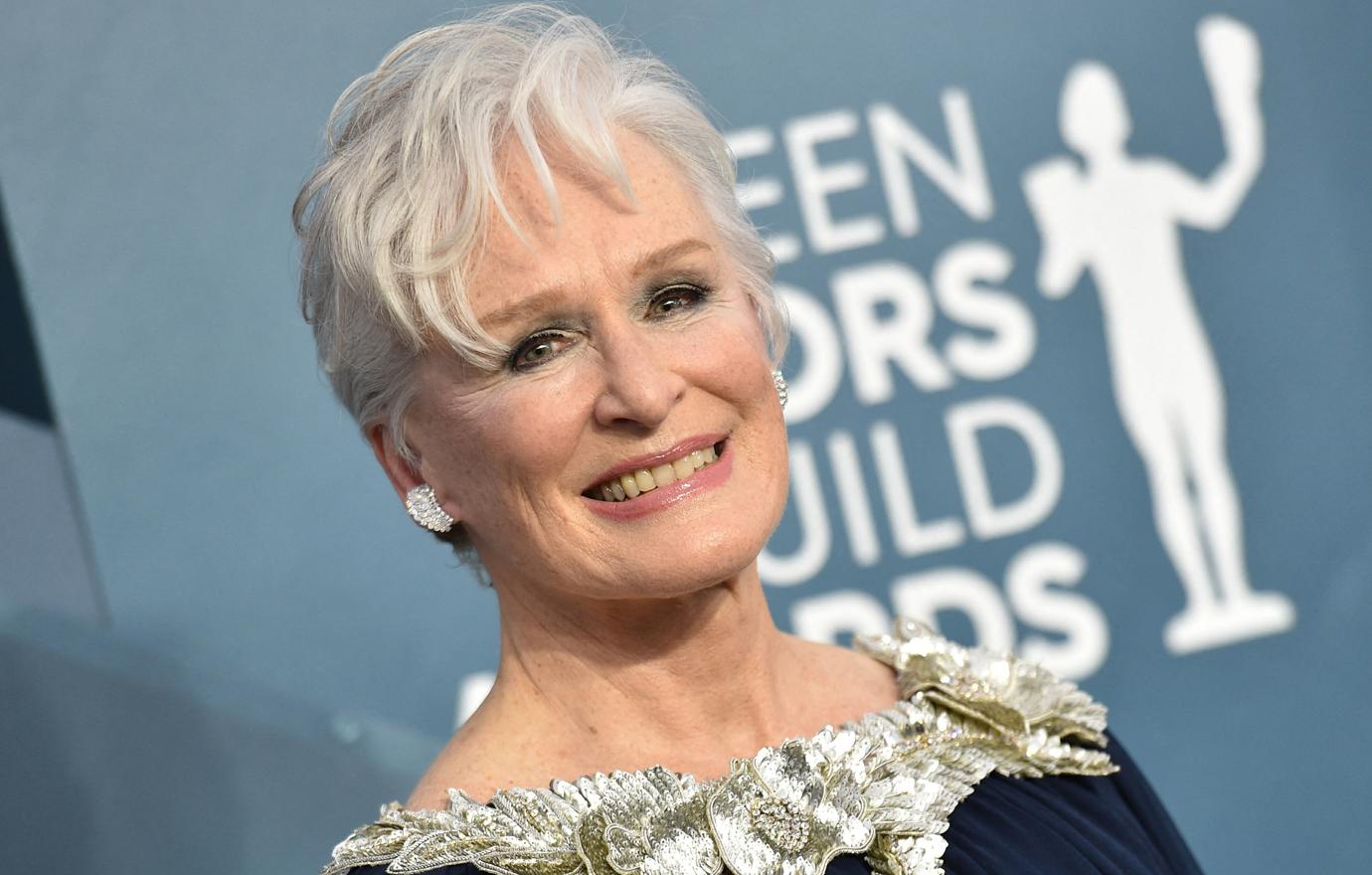
Glenn Close had one of the more unconventional childhoods of a Hollywood A-lister. Her father, the Harvard-educated physician Dr. William Taliaferro Close, spent much of her childhood away from the family working in the Belgian Congo. At one point he was the personal physician of Congolese dictator Mobutu Sese Seko. Glenn spent her earliest years on her grandparents’ estate in Connecticut, but William eventually relocated the family to Caux, Switzerland in 1954 where they lived in a palatial hotel called The Mountain House.
The Mountain House was also the international headquarters of a religious movement called Moral Re-Armament, which William had joined. Moral Re-Armament was founded in 1938 by a charismatic and violently anti-intellectual evangelical preacher named Frank N.D. Buchman. Buchman and his followers were moral absolutists who believed that sexual practices like masturbation were sinful and required purification. At its height, its membership was around 30,000 worldwide.
Close and her family lived in The Mountain House for two years while her father worked in the Congo. She described her experiences to The Hollywood Reporter, "You basically weren't allowed to do anything, or you were made to feel guilty about any unnatural desire. If you talk to anybody who was in a group that basically dictates how you're supposed to live and what you're supposed to say and how you're supposed to feel, from the time you're 7 till the time you're 22, it has a profound impact on you. It's something you have to consciously overcome because all of your trigger points are wrong."
Close finally extricated herself from Moral Re-Armament in 1970 at age 22. But it would take many more years to fully escape the cult’s influence.
The Arquette Family
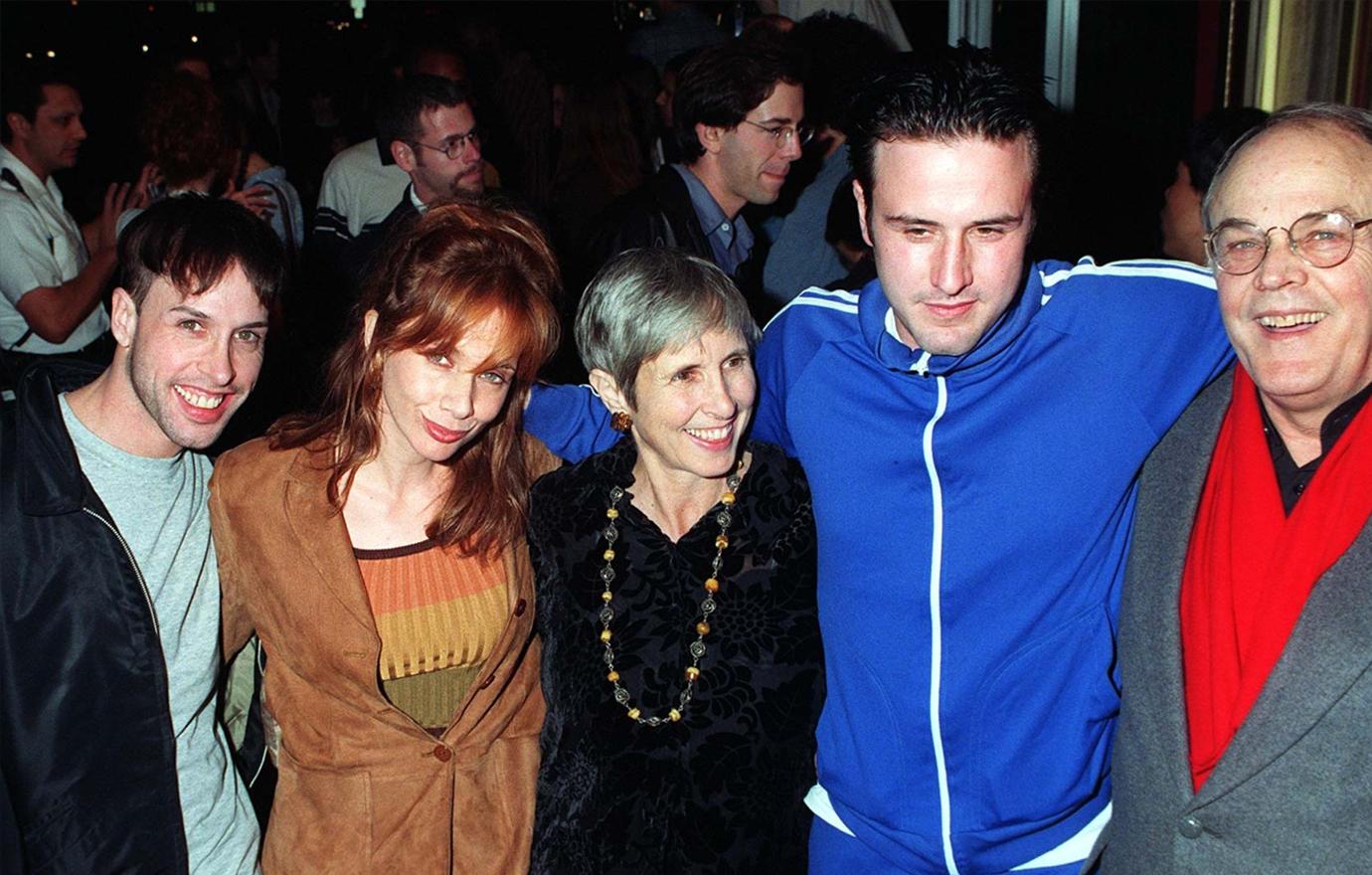
The Arquettes are a showbiz family going back four generations. Siblings Patricia, Rosanna, David, Richmond and Alexis Arquette all followed in their parents’ footsteps and pursued acting. During the 1960s and 1970s, parents Lewis and Mardi Arquette were on a spiritual journey trying out various belief systems and religions. This is how the family ended up living on a compound in Virginia devoted to Subudism.
Subudism is a spiritual movement founded in Indonesia in the 1920s. Its founder, Muhammad Subuh Sumohadiwidjojo, claimed that while walking alone one night a ball of light entered his body, which was actually the power of God. According to Subuh, he later realized he could pass along this life force to other individuals without weakening it. Subuh began attracting a following with the promise that he could help them awaken their inner selves and find a more fulfilling life.
In 1969, the Subud movement purchased a former Christian summer camp in Skymont, Virginia to host their World Congress, and it later became a commune. In the early 1970s, Lewis Arquette relocated his family from Los Angeles to Skymont to live in the Subud commune. David was born in the commune in 1971.
Lewis, who at the time had a recurring role as J.D. Pickett on The Waltons and also appeared on Broadway, would commute between Los Angeles, New York City and Virginia. Meanwhile, his family lived in an unheated one-room cabin without running water. While the Arquette siblings remember commune life fondly, their home life was much more volatile. The Arquette siblings describe their parents as drug addicts and abusive. "There was a lot of drama in the house," Patricia Arquette told ABC News. "There were a lot of chairs flying around."
"A lot of hole punching in walls," Rosanna Arquette added. "My mom stabbed me in the arm with a knife. Concussions. Just terrible physical abuse."
The commune eventually fell apart due to a lack of funding, and the Arquettes began a more conventional lifestyle.
Rose McGowan
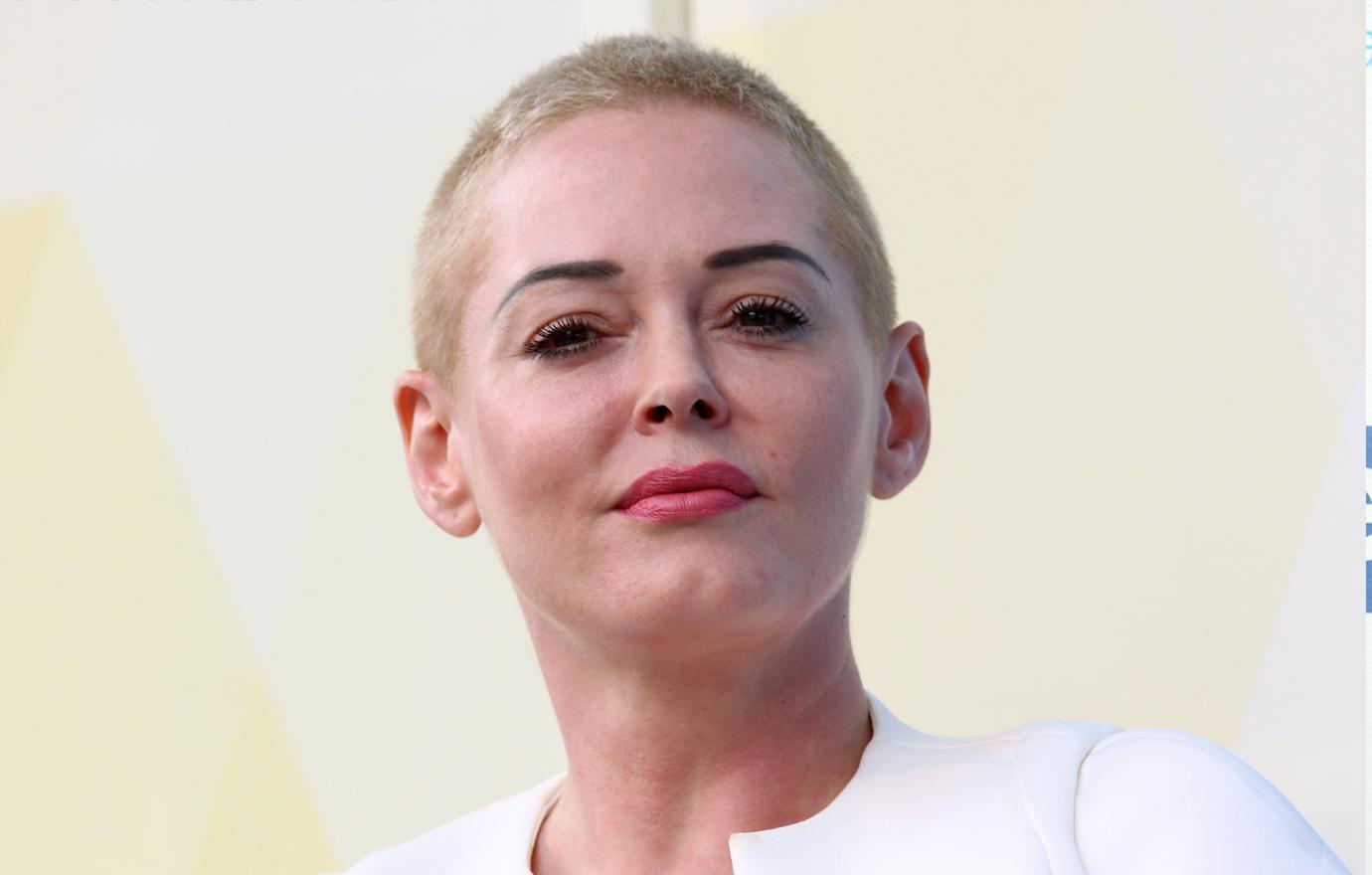
Joaquin Phoenix isn’t the only well-known actor who grew up in the Children of God cult. Rose McGowan’s father, Daniel, ran the Italian chapter of Children of God. Her family lived on a commune outside Florence, and she spent much of her childhood traveling to various other chapters around Europe.
Rose remembers commune life as bearing many hallmarks of a cultish lifestyle, including social isolation, disallowance of alternate points of view and limited freedom. “You were cut off from your outside family,” she told People. “There were no newspapers, no television. You were kept in the dark so you would obey.”
Children of God’s free-love message translated to a polygamous lifestyle among its members, often at the expense of its female members. “I remember watching how the men were with the women, and at a very early age I decided I did not want to be like those women,” Rose said. “They were basically there to serve the men sexually — you were allowed to have more than one wife.” Daniel McGowan himself had two spouses, Rose’s mother, Terry, who also gave birth to her two siblings, Nat and Daisy and another wife named Rebecca.
The cult’s non-conformist lifestyle drew Daniel in, but it was the practice of encouraging sex with children that prompted the family’s exit. Daniel, who drew illustrated Biblical tracts for the cult, was asked to create cartoons advocating child sex, which was the final straw. Daniel and the children escaped in the middle of the night by running through a cornfield and hiding in a farmhouse. Terry remained with Children of God for a while longer until she eventually made her way back to the United States.
Rose says she was never sexually abused during the family’s time with the cult.
Christopher Owens

Years before playing to packed arenas as part of the rock duo Girls, singer-songwriter Christopher Owens also spent part of his childhood in the cult formerly known as Children of God. By the time of Owens’ birth in 1979, the cult was no longer using the name “Children of God.” Amid public outcry against the group’s sexual misconduct with minors, Children of God was abolished in 1978 and renamed “The Family of Love” and later “The Family.” Despite the name change, the group’s beliefs and practices remained mostly the same.
Like Joaquin Phoenix and Rose McGowan, Owens describes a childhood of isolation and indoctrination. "Imagine being raised in the Taliban," he told The Guardian. "Being told everybody else in the world is bad, rejecting technology, rejecting medical research, being devoted to God and believing America was evil and the end of the world was coming: all the same principles."
Owens and his family lived a nomadic lifestyle during his childhood traveling from one commune to another and only staying for brief periods. His two-year-old brother died of pneumonia when the cult refused to give him medical attention, which prompted his father to leave. Owens would remain in the cult until age 16 when he finally ran away to live with his sister in Amarillo, Texas. There he became a personal assistant to oil billionaire Stanley Marsh III, which gave him much-needed stability. After that, he moved to San Francisco and pursued his musical career.
After founder David Berg’s death in 1994, The Family continued to attempt to distance itself from his pedophilic activities. In 2004, it once again changed its name to “The Family International,” and it continues operations to this day.

Toni Braxton

Like many musicians, the multiple Grammy award-winning singer-songwriter Toni Braxton got her start by singing in the church choir. But as she revealed in her 2014 memoir, Unbreak My Heart, church was also a formative experience in a negative way. As a child, Braxton’s family attended a series of extremist Apostolic Pentecostal churches.
Shortly after Braxon was born in 1967, her parents — Michael, a minister and Evelyn, a pastor and former opera singer — left their Baptist faith and ended up at a church called Pillar of Truth. Although Pillar of Truth doesn’t meet the strictest definition of a religious cult, Braxton described her lifestyle as “cult-like” and repressive. Women were required to “cover their nakedness” with dresses and stockings, even in summer. Celebrating holidays was considered ungodly. Children were forbidden from roller skating and attending movies and drinking was sinful.
“I began connecting religion, God and church with judgment, anxiety and guilt,” Braxton wrote in her memoir.
Pillar of Truth believed that the rapture could happen at any time and thus encouraged all its members to be “saved” and stay obedient, through baptisms and speaking in tongues. At age 8, Braxton pretended to speak in tongues in order to better fit in.
But Braxton also excelled in the church’s children’s choir, the Sunshine Band. She became known in the area for her incredible musical ability — people described her as “the girl who could sing like Anita Baker.” In 1988, she met a fledgling music producer named Bill Pettaway, who helped her record a demo tape and secure her first recording contract.
Angel Haze

The fact that Angel Haze has managed a successful career is all the more impressive considering that as a child she was forbidden from listening to music. This was just one of the restrictions placed on her by the fundamentalist church she grew up in, which Haze now describes as a cult.
Haze’s father died while her mother was still pregnant with her. Her mother then met a man who was a self-described prophet in the Pentecostal Greater Apostolic Faith. He was also married with children, but he convinced Haze’s mother to move in with them.
Haze describes her time in the Pentecostal Greater Apostolic Faith as relentlessly oppressive. "We all lived in the same community, within 10 minutes of each other," she told The Guardian. "You weren't allowed to talk to anyone outside of that, you weren't allowed to wear jewellery, listen to music, to eat certain things, to date people … you weren't allowed to do pretty much anything. Church was on Sundays, Wednesdays and Fridays. When they did revivals it was everyday. I used to just crawl under the bench and try to sleep."
Haze also says the “prophet” encouraged members to impregnate underage girls. In her 2012 mixtape, “Cleanin’ Out My Closet,” she relates her own experiences being sexually assaulted at age 7.
Her mother frequently attempted to escape the church until finally leaving it for good when Haze was 14.


